If you frequently manage data in Microsoft Access, creating a combo box is an effective way to quickly access frequently used entries. In this guide, I will walk you through the process of setting up a combo box that looks up data from another table, such as a postal code directory.
Key Insights
- Combo boxes allow you to select values from a list.
- You can link to another table to simplify your entries.
- Adjusting column widths and numbers is essential for an optimal user experience.
Step 1: Preparing the Data Source
Before you can create a combo box, you need to ensure you have the data source. In your case, it’s a table with the postal codes you want to use. Open the table and confirm that all relevant data is present.
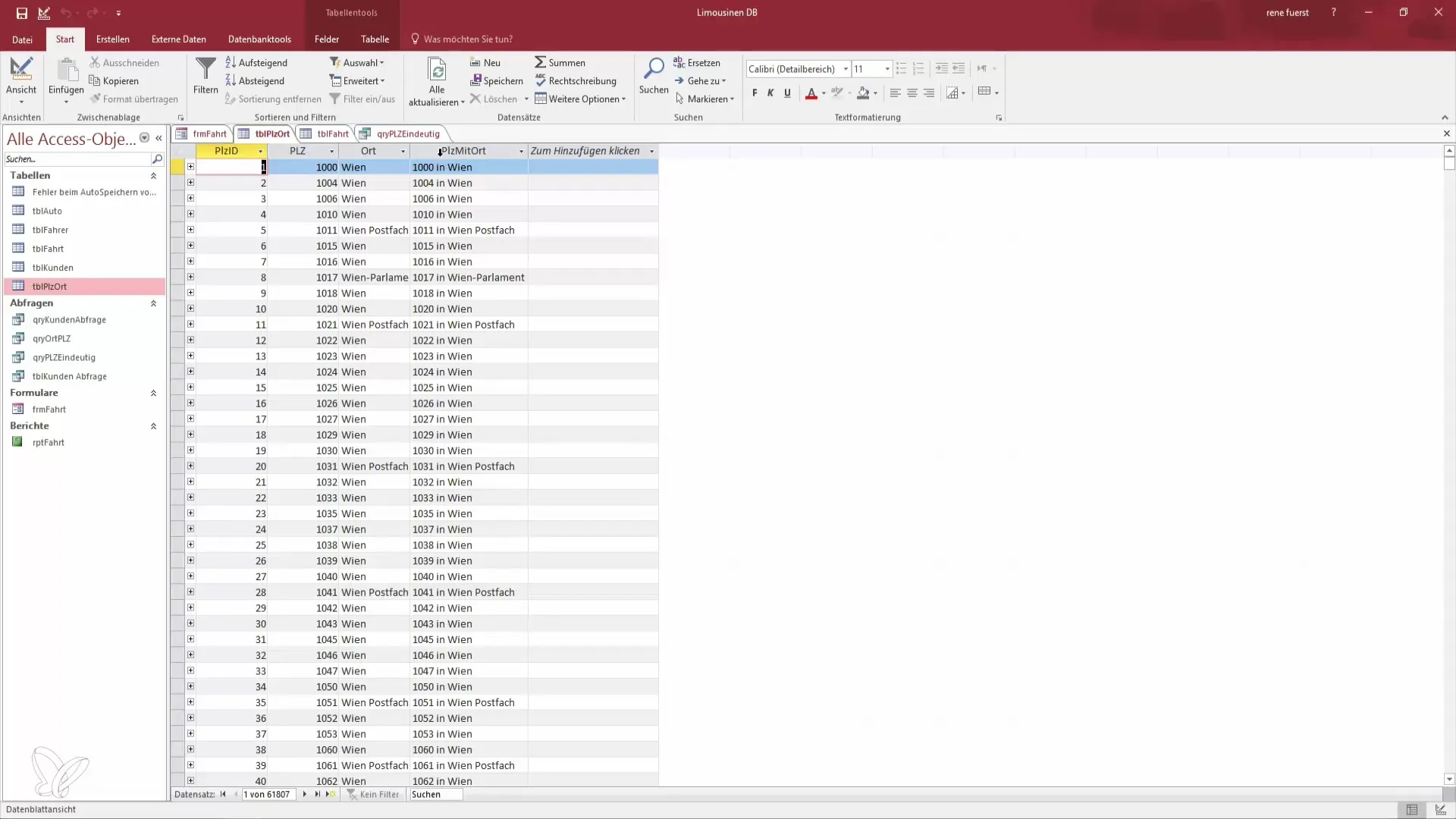
Step 2: Inserting the Combo Box in the Form
Switch to the design mode of your form. Here, you will add a new combo box. Drag the combo box from the controls list into your form.
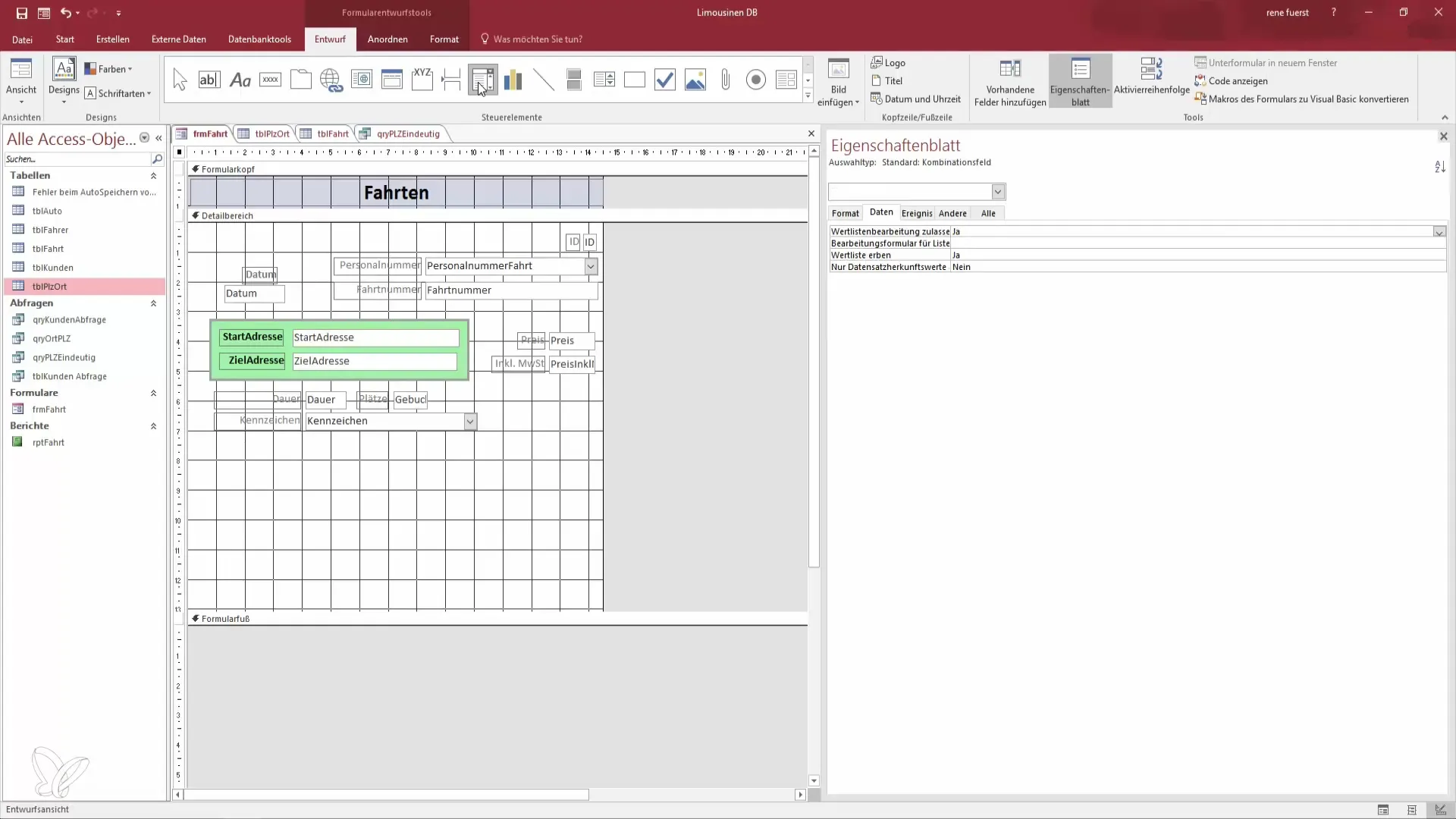
Step 3: Skipping the Combo Box Wizard
The combo box wizard will open automatically, but it is advisable to ignore it initially. Instead, we want to manually adjust the combo box to avoid potential issues.
Step 4: Setting the Data Source for the Combo Box
Now you need to specify where the data for your combo box will come from. Select the table that contains the relevant information - in your case, the table with the postal codes.
Step 5: Defining Columns and Their Widths
You can now define the columns for the combo box. Be sure to set the column widths correctly. For example, the ID column can be 0 cm wide, while the column for the postal code and the place should each be 4 cm.
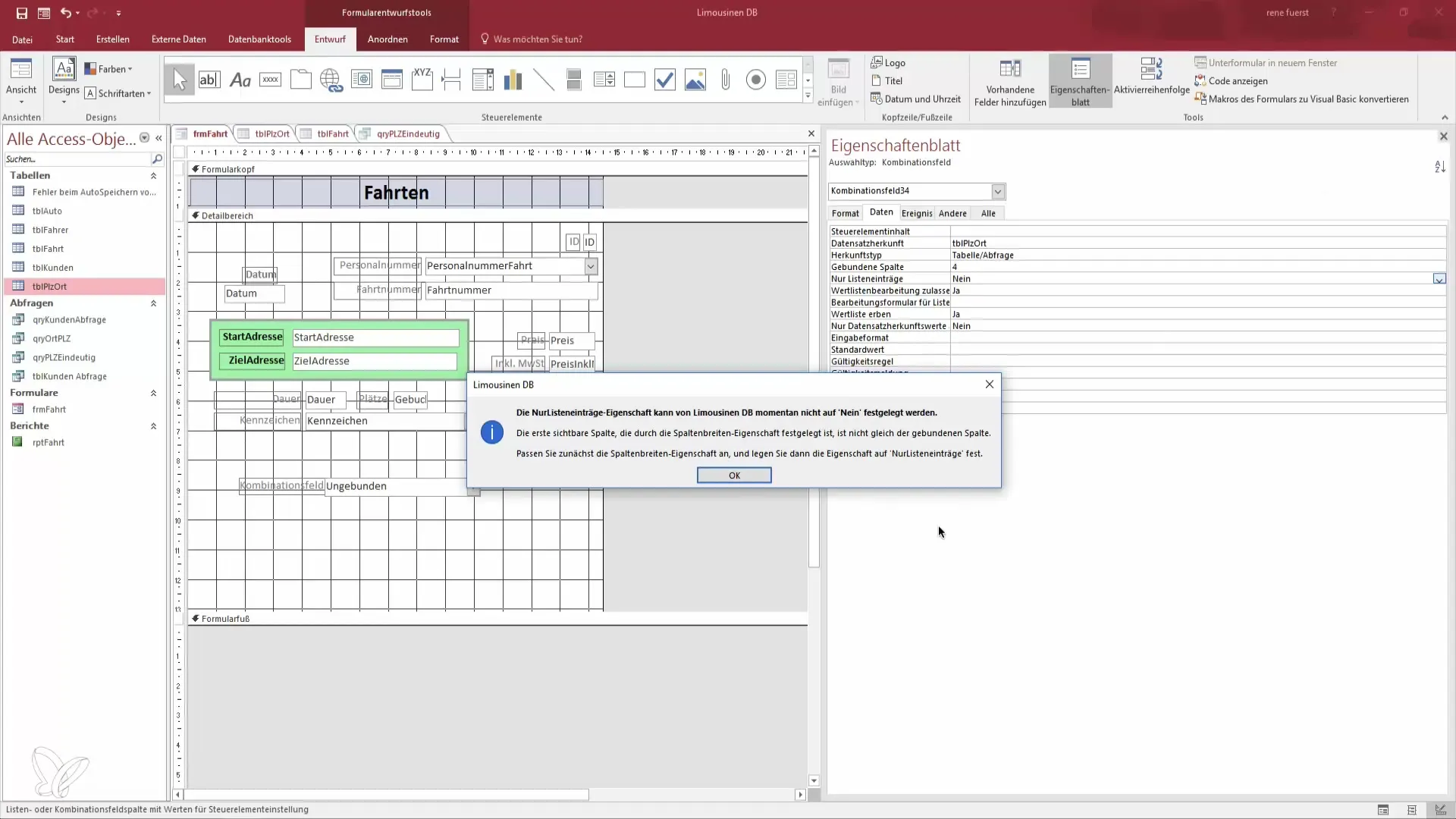
Step 6: Checking the Visibility of the Data
Switch to the form view to test if your combo box is functioning correctly. Check if the postal codes and places from your database are displayed.
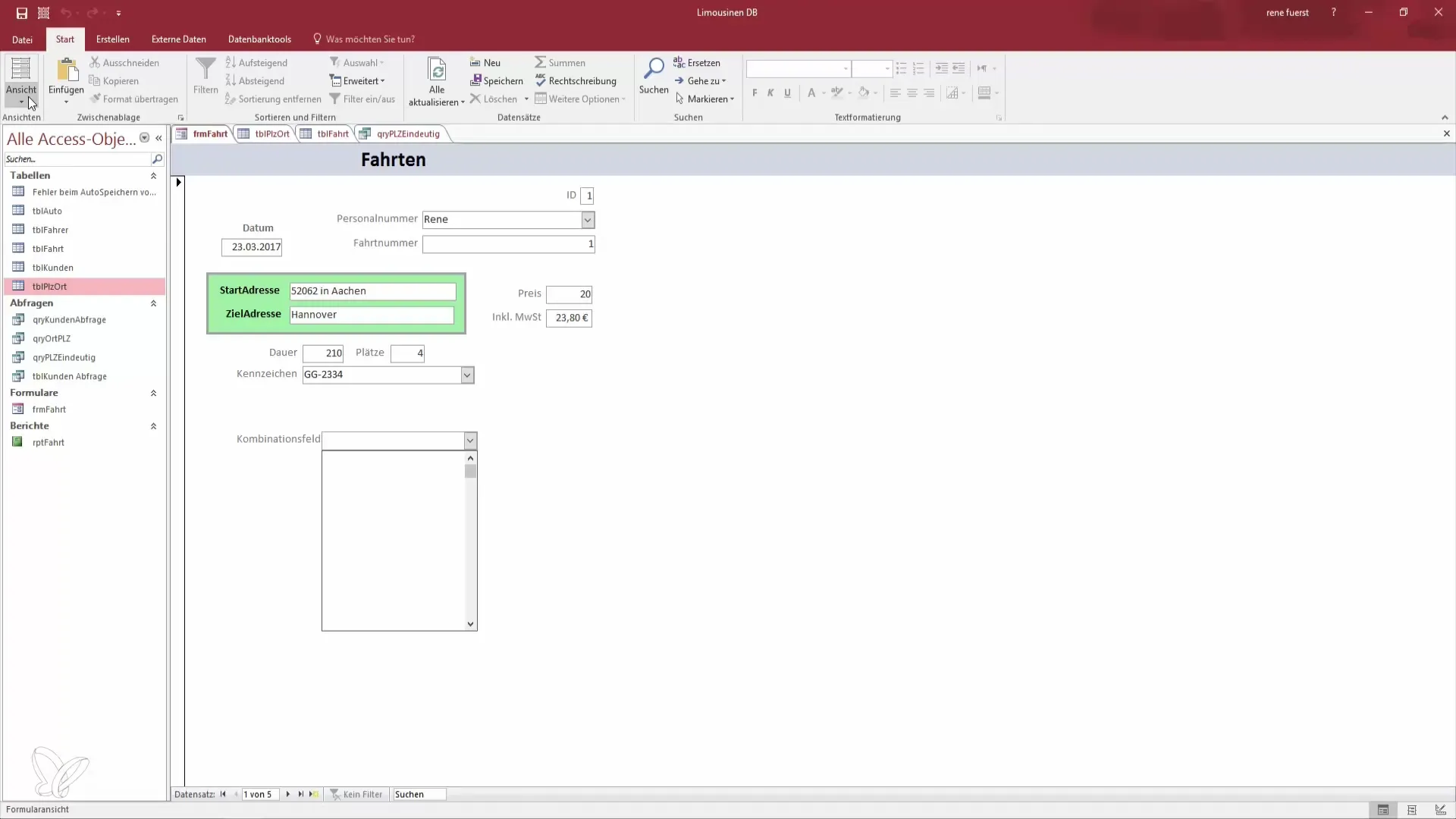
Step 7: Mapping the Data
Now you need to ensure that the data the user selects is correctly saved in your form. Go to the properties window of the combo box and set it to save the data in the "Start Address" field.
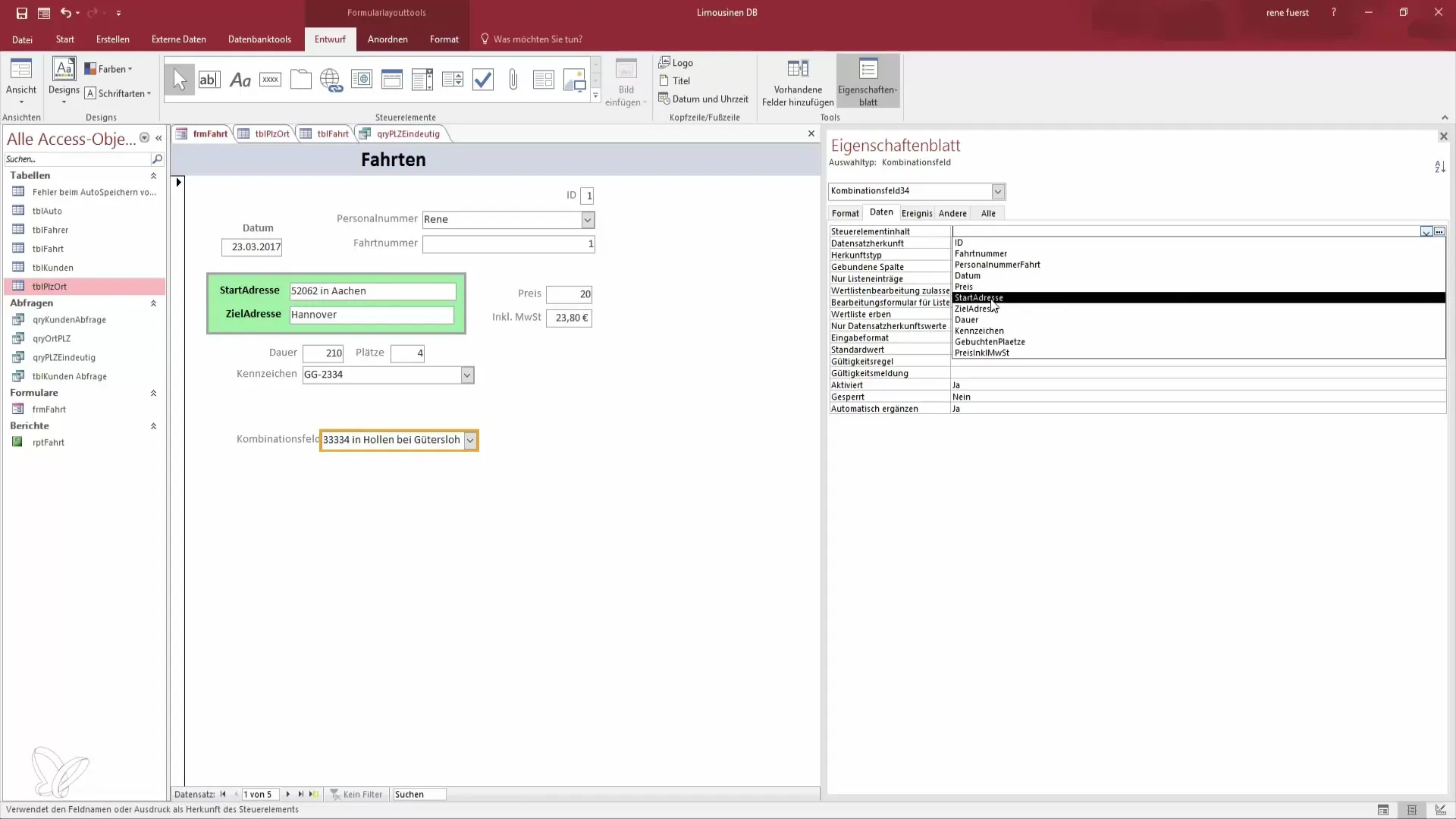
Step 8: Updating and Testing the Data
It’s important to save the changes and reopen the form to ensure that the selection in the combo box is displayed correctly. Select a postal code and check if the corresponding address is updated.
Step 9: Adding the Destination Address
To create the destination address, you can repeat the same process for another combo box. This allows users to quickly select both the start and destination addresses.
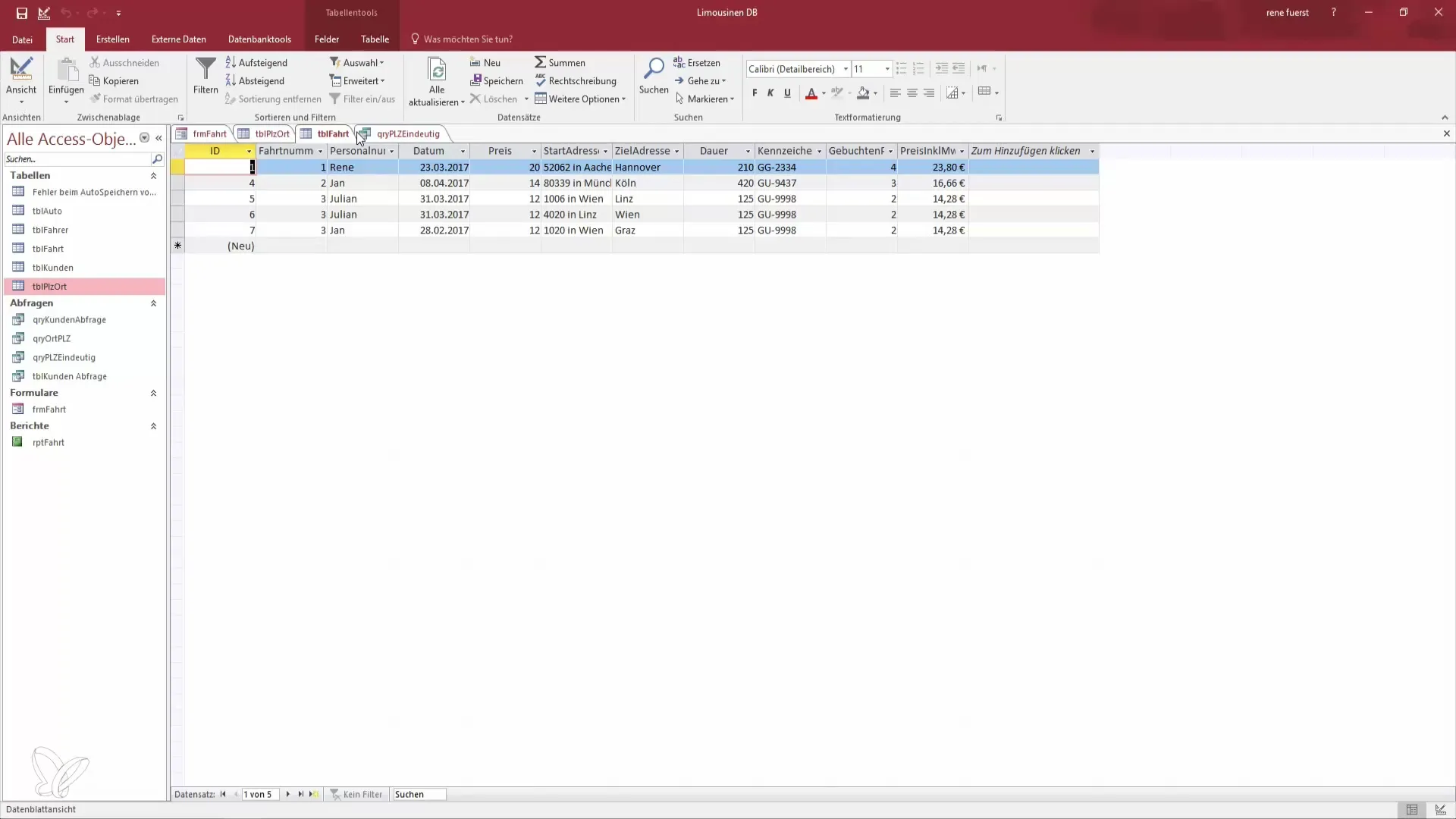
Step 10: Customizing the Form
Customize your form by possibly removing unnecessary fields or changing the width of the input fields. Ensure that everything is clear and functional.
Summary – Creating a Combo Box in Access
In this guide, you learned how to create a combo box in Microsoft Access. You now also know how to link the combo box with a table and improve the user experience through proper column widths and counts. By implementing these steps, you significantly ease data entry in Access for yourself and others.
Frequently Asked Questions
How do I create a combo box?You can create a combo box by dragging it from the controls list into the design mode of your form.
Could I also use data from a query?Yes, you can choose a query instead of a table as the data source for the combo box.
How can I ensure that the selection is saved correctly?In the properties window of the combo box, ensure that the correct target control is set for where the data should be saved.
How do I test my combo box?Switch to the form view and check if your selection in the combo box is displayed correctly.
Can I change the graphics of the form?Yes, you can adjust the width of the fields and the fonts to make the form more appealing.


